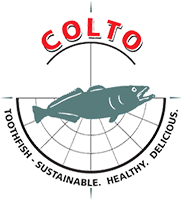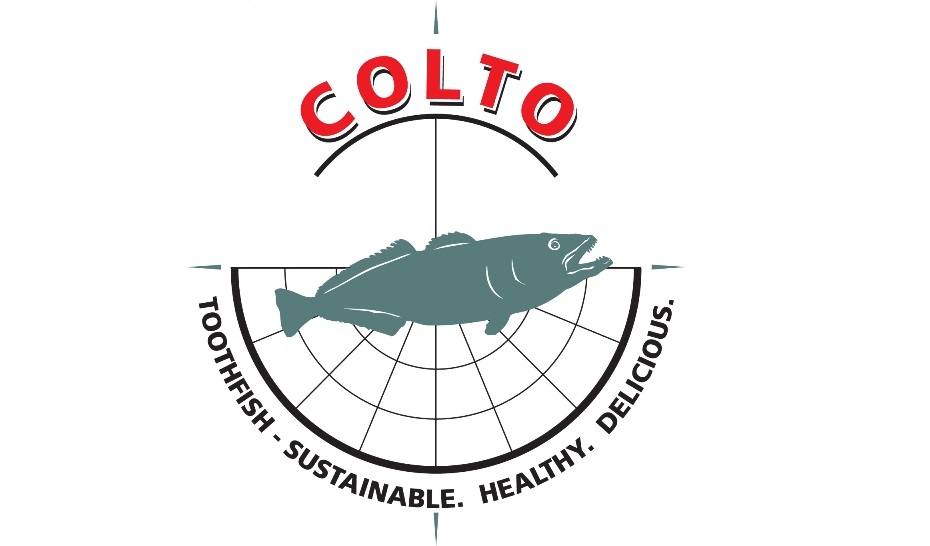In a paper released today by the Stockholm Resilience Centre, COLTO has been acknowledged for its early work in helping to eradicate IUU fishing of toothfish in the Southern Ocean and its stewardship since of the toothfish resource.
Abstract:
Humanity has never benefited more from the ocean as a source of food, livelihoods, and well-being, yet on a global scale this has been accompanied by trajectories of degradation and persistent inequity. Awareness of this has spurred policymakers to develop an expanding network of ocean governance instruments, catalyzed civil society pressure on the public and private sector, and motivated engagement by the general public as consumers and constituents. Among local communities, diverse examples of stewardship have rested on the foundation of care, knowledge and agency. But does an analog for stewardship exist in the context of globally active multinational corporations? Here, we consider the seafood industry and its efforts to navigate this new reality through private governance. We examine paradigmatic events in the history of the sustainable seafood movement, from seafood boycotts in the 1970s through to the emergence of certification measures, benchmarks, and diverse voluntary environmental programs. We note four dimensions of stewardship in which efforts by actors within the seafood industry have aligned with theoretical concepts of stewardship, which we describe as (1) moving beyond compliance, (2) taking a systems perspective, (3) living with uncertainty, and (4) understanding humans as embedded elements of the biosphere. In conclusion, we identify emerging stewardship challenges for the seafood industry and suggest the urgent need to embrace a broader notion of ocean stewardship that extends beyond seafood.
COLTO highlights:
The Coalition of Legal Toothfish Operators (COLTO), founded in 2003, is exemplary of the potential for VEPs to foster sustainable fisheries and solve a series of problems that national governments were struggling to address. Patagonian toothfish (Dissostichus eleginoides) are a long-lived fish (often living for over 50 years) generally found in deep waters of the Indian Ocean, South Georgia and Patagonian shelf. Creatively rebranded as “Chilean seabass,” Patagonian toothfish supports a valuable fishery, which expanded rapidly in the early 1990s to reach peak levels of annual reported catch that exceeded 40,000 tons in 1995. Yet catches were substantially higher due to the prevalence of highly lucrative illegal, unregulated and unreported (IUU) fishing, estimated at 35,000 tons (with a value of USD 150 million) in 1997. Illegal toothfish operations were depleting toothfish stocks so rapidly that the future of legal fisheries was also at risk – illegal operations also relied on deep-sea longlines that were catching so many seabirds that the stocks of multiple albatross species (Diomedidae) and white-chinned petrels (Procellaria aequinoctialis) were likely on the verge of collapse. By the early 2000s, retailers were halting sales of Chilean seabass, and over 1,000 chefs had agreed to “Take a Pass on Sea Bass,” a campaign launched by the National Environmental Trust in the style of the previous dolphin-safe tuna and “Give Swordfish a Break” efforts.
Legal toothfish operations were in a particularly challenging position due to the depletion of stocks by illegal operators and the increasingly negative perceptions of retailers and consumers about toothfish. They noted that the rapid increase in illegal fishing was outpacing the slow response from governments. While the Commission for the Conservation of Antarctic Marine Living Resources (CCAMLR), with its 26 members and 10 acceding states, aims to conserve life in the Antarctic, combatting illegal fishing is a sensitive issue as some of the member states have been involved as flag states or port states for vessels engaged in these activities. An informal “shadow network” of actors, however, began to emerge in the mid-1990s through engagement between a Norwegian NGO and industry actors seeking a more rapid response to illegal activity – the outcome was the International Southern Ocean Longline Fisheries Information Clearinghouse (ISOFISH), an organization dedicated to eliminating illegal toothfish operations, and explicitly connecting industry players and civil society actors. Unbound by the formalities and sensitivities that face governments when engaging through CCAMLR, ISOFISH was able to exert considerable social and political pressure with reports detailing vessels engaged in illegal activities, their ports of call, and efforts to obscure their purpose through reflagging. The reports were welcomed by CCAMLR, spurring the introduction of a range of formal and informal compliance mechanisms that reduced illegal fishing by over 90% within years. As a result of these successes, ISOFISH formally disbanded in 1999, among other things to avoid potential legal liability from companies that ISOFISH had implicated in illegal activity. Illegal toothfish operations in the Southern Ocean, however, experienced an upsurge in 2002, creating alarm among legal toothfish operators. The shadow networks that had formed as a result of collaboration under ISOFISH was reanimated and formalized with the establishment of COLTO in 2003.
Aware of the existential threat to the legal toothfish operations, COLTO members invested USD 2 million to self-fund investigations into illegal fishing activities; a series of high-profile reports were broadcast on national television in Australia, and dramatic pursuits of vessels engaged in illegal operations helped to build further awareness among the general public and politicians. Since the drama of the early 2000s, COLTO has entered a relatively more dormant state in which it maintains the networks necessary for rapid response to illegal activity, and activates them as needed. COLTO’s activities have now expanded to focus not only on eliminating illegal activity, but also to embrace a broader stewardship role by focusing on reducing seabird bycatch, whale depredation on toothfish longline fisheries, and science communication. The final vessels engaged in illegal toothfish operations are being systematically eliminated; by 2010, there were just a handful of vessels left on the list of repeat offenders, and their ranks continue to thin – in 2016, one was blown up by Indonesian authorities, while another was chased all the way to the coast of Liberia, where it was apprehended in 2018. With illegal catches almost entirely eliminated, the membership of COLTO now represents around 77% of the world’s toothfish catch, 51% of which also enjoys MSC certification.
The full paper can be found at Frontiers in Marine Science.

